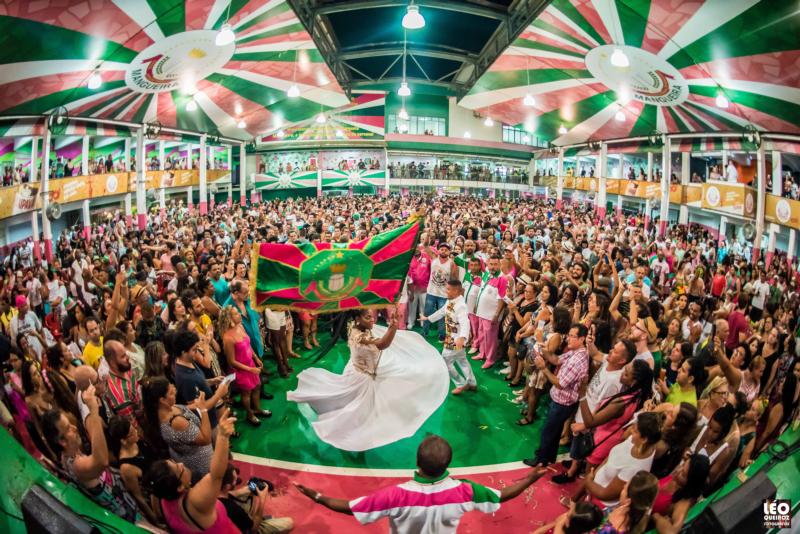
Dancers rehearse at Estacao Primeira de Mangueira, one of Brazil's most ordinary samba colleges, in Rio de Janeiro. The college announced that the theme of its 2020 efficiency should be the story of Jesus taken to a Rio de Janeiro slum. (CNS photograph/Leo Queiroz, courtesy Mangueira)
by way of Eduardo Campos Lima • Catholic information carrier • Posted November 6, 2019
SAO PAULO (CNS) — certainly one of Brazil's most average samba schools — the familiar associations that organize annual Carnival parades in the nation — introduced that the theme of its 2020 efficiency could be the story of Jesus taken to a Rio de Janeiro slum.
Estacao Primeira de Mangueira additionally introduced its performance music, which alludes to the increasing police brutality and to the violence suffered by way of minorities in Brazil.
Written by way of the composers Manu da Cuica and Luiz Carlos Maximo, the tune talks a few boy in a favela, or slum. He has a "black face, indigenous blood and the physique of a lady" and is the son of an "unemployed carpenter" and of "Mary of Sorrows Brazil."
The narrator of the track referred to the boy, who a long time as the tune progresses, struggles in opposition t oppression and may be met "where love finds no limitations." In a further part, the music says "Favela, get the imaginative and prescient/ There's no future with out sharing/ And no Messiah with a gun in his hand," a likely allusion to President Jair Bolsonaro's promises of loosening gun control legislation and of reducing punishment for police who kill suspected criminals. Bolsonaro's center identify is Messias.
an extra feasible reference to Bolsonaro is the title of Mangueira's parade theme, "The truth will set you free," which became — with a mild change in the Portuguese wording — one in every of Bolsonaro's crusade slogans in 2018. Bolsonaro, a self-described Catholic, changed into elected with a powerful support of evangelical Christians, and his wife — he's in his third marriage — is a member of an evangelical denomination.
Father Antonio Manzatto, a theology professor at the Pontifical Catholic university of Sao Paulo, said Mangueira's parade is by some means impressed through the subculture of Latin American liberation theology, a move principally influential in Brazil all over the 1970s and 1980s; it emphasizes the church's preferential alternative for the terrible.
Father Manzatto stated liberation theology become a central movement in the resistance in opposition t the armed forces regime that ruled the nation between 1964 and 1985.
"Now that we have a far-right govt with indications of obscurantism and persecution of dissidents, Mangueira is bringing us a parade it's by hook or by crook concerning the duration when liberation theology emerged," he observed.
"Mangueira's parade isn't about liberation theology," he added, "however the relevance of liberation theology for the Brazilian Catholic Church — and also for other Christian denominations — for the Brazilian society and way of life turned it into a kind of countrywide patrimony.
"in this experience, I suppose Mangueira's theme is by some means an heir of liberation theology."
Leandro Vieira, Mangueira's carnavalesco — the artist who initiatives and supervises all the creative manner concerned in the parade — confirmed that the parade's theme makes a speciality of "Jesus' biography in a critical manner," an idea regarding "preaching the Gospel with a preferential option for the negative and defending their rights."
"In my readings, I discovered a phrase that spoke of that the remarkable problem of the contemporary church isn't to overcome greater followers, however to train the ones who profess to be Christians to definitely be Christians," Vieira informed Catholic news carrier.
Brazil is a Christian country, he observed, however individuals are used to "centuries-ancient illnesses that take us far away from Jesus' teachings and practices."
"all the way through human historical past, the figure of Christ has been used to justify a large number of atrocities. The fraternal values and unconditional love professed via Christ had been now not easily assimilated with the aid of society," Vieira noted.
The Brazilian Carnival festivities, specially in Rio de Janeiro, are a multimillion-greenback adventure with massive cultural and financial have an impact on. In 2019, Rio de Janeiro's Carnival generated an profits of $940 million for the city.
Political and social criticism are a normal a part of some parades. during the past, samba faculties have been now and then criticized for the inclusion of spiritual elements of their performances. In 1989, for example, the Archdiocese of Rio de Janeiro obtained an injunction that forbade a samba school to parade with a duplicate of the statue of Christ the Redeemer characterised as a beggar.
old: Lebanese, protesting in streets, need a changing of the safeguard
next: Indian bishop denies claims of misconduct, says accusers oppose reforms



No comments:
Post a Comment